10 Best Humulus Lupulus Preparations
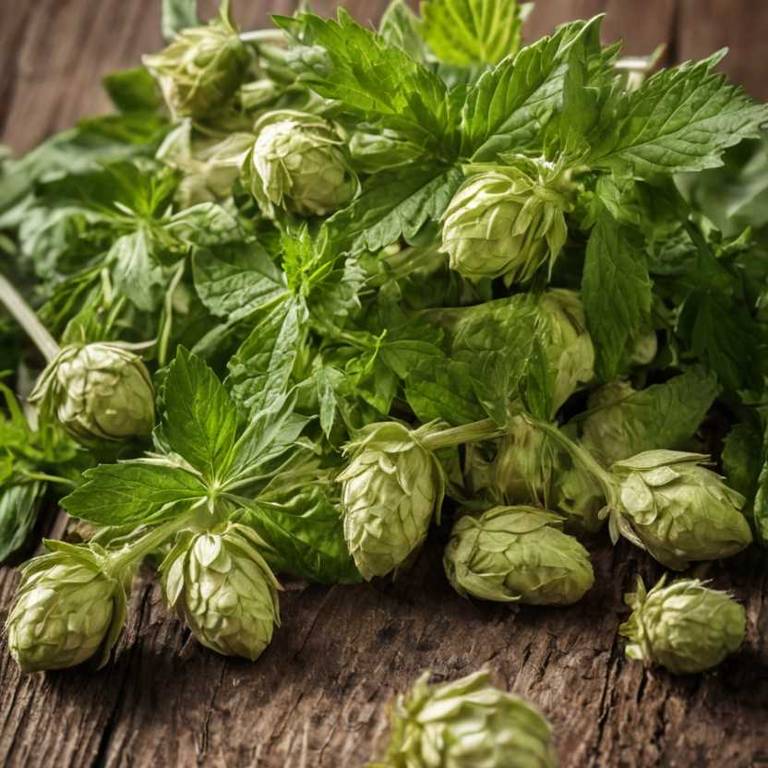
The best medicinal preparations of Humulus lupulus are teas, decoctions, tinctures, syrups, and linctuses, each offering unique benefits for health and wellness.
Herbal teas made from dried hops are commonly used to promote relaxation and improve sleep.
Decoctions involve simmering the herb in water to extract its bitter compounds, often used for digestive support.
Tinctures provide a concentrated form of the herb, ideal for targeted medicinal use.
Syrups and linctuses are particularly effective for soothing coughs and respiratory ailments due to their expectorant properties.
Below there's a list of the 10 best herbal preparations of humulus lupulus for medicinal purposes.
- 1. Teas
- 2. Decoctions
- 3. Tinctures
- 4. Syrups
- 5. Linctuses
- 6. Capsules
- 7. Lozenges
- 8. Creams
- 9. Oinments
- 10. Liniments
1. Teas
Humulus lupulus teas is commonly used to treat digestive issues, anxiety, and insomnia due to its calming and anti-inflammatory properties.
The most common medicinal uses include alleviating symptoms of gastrointestinal disorders such as indigestion and irritable bowel syndrome, as well as reducing stress and promoting sleep. This herbal preparation is also used to manage menstrual cramps and support liver function. The bioactive constituents responsible for these effects include humulone, lupulone, and other bitter acids that have antimicrobial and anti-inflammatory properties.
Additionally, flavonoids and polyphenols contribute to its antioxidant and calming effects.
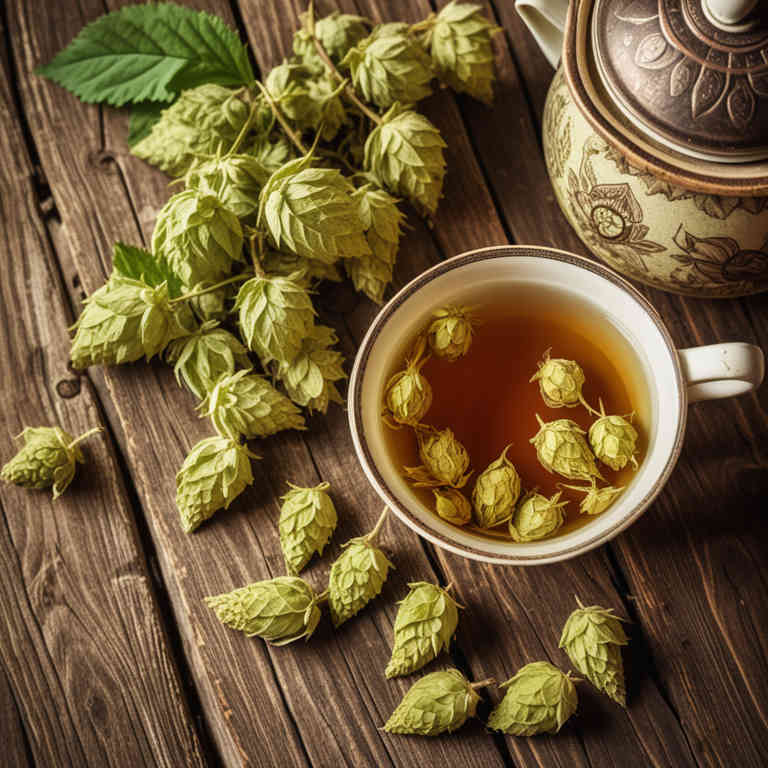
2. Decoctions
Humulus lupulus decoctions is commonly used to treat ailments related to the nervous system, digestive tract, and skin conditions.
This herbal preparation is frequently employed for its calming effects, helping to alleviate anxiety, insomnia, and restlessness. It is also used to address gastrointestinal issues such as indigestion, nausea, and inflammatory bowel conditions. The bioactive constituents responsible for its medicinal properties include humulone, lupuline, and various polyphenols, which possess antimicrobial, anti-inflammatory, and sedative effects.
Additionally, the decoctions may contribute to liver health and have been traditionally used to support detoxification processes in the body.
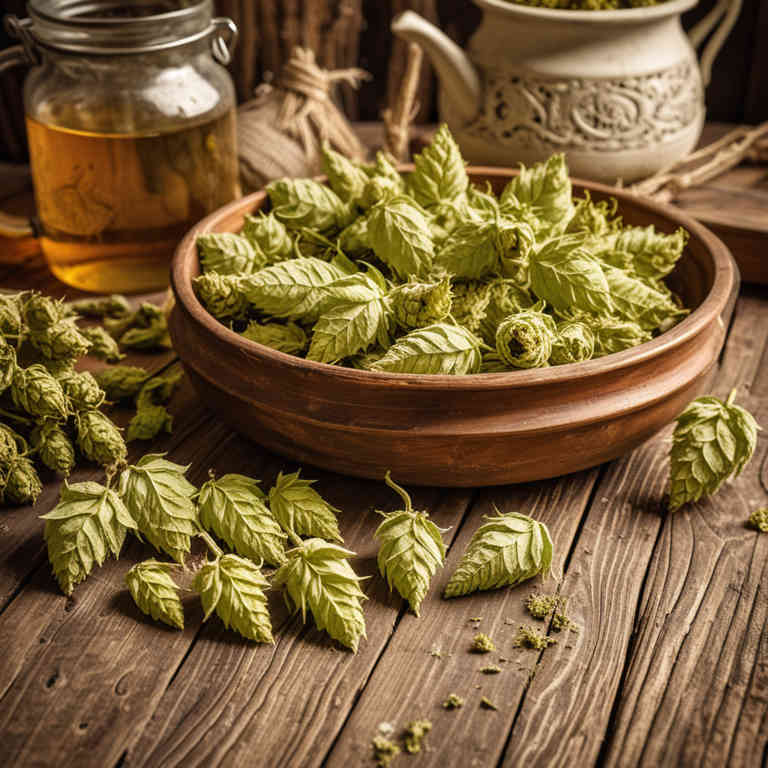
3. Tinctures
Humulus lupulus tinctures is commonly used to treat ailments related to the nervous system, such as anxiety, insomnia, and restlessness.
These tinctures are also used to alleviate symptoms of digestive issues like indigestion and nausea. The most common medicinal uses include calming the nervous system, improving sleep quality, and reducing stress-related disorders. The bioactive constituents responsible for these effects include lupulins, humulone, and various flavonoids and polyphenols.
These compounds contribute to the tincture's sedative, anti-inflammatory, and antimicrobial properties.
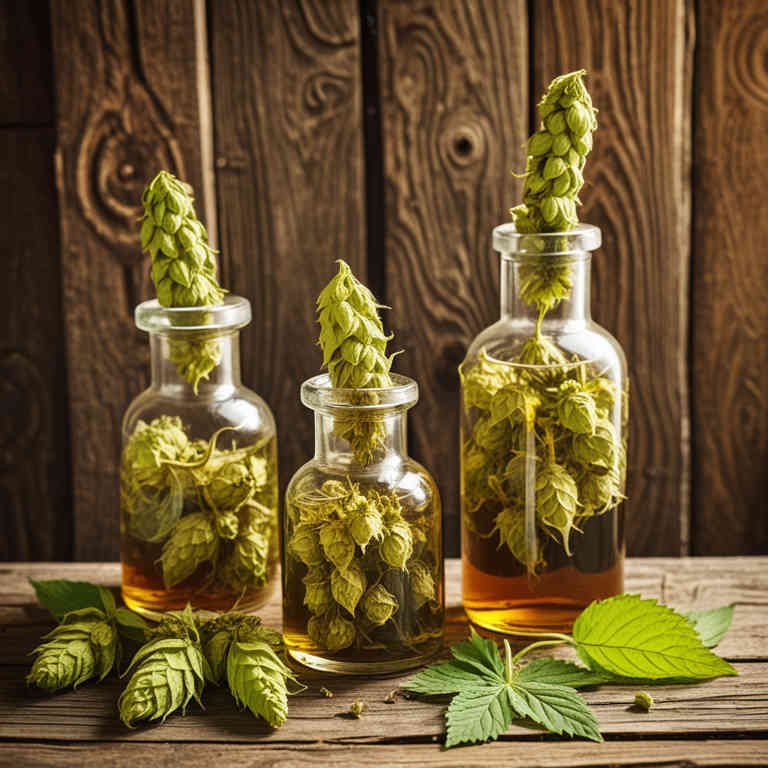
4. Syrups
Humulus lupulus syrups is commonly used to treat ailments related to the digestive system, such as indigestion, nausea, and gastrointestinal discomfort.
This herbal preparation is also used to alleviate symptoms of anxiety and insomnia due to its calming effects. The most common medicinal uses include soothing upset stomach, reducing inflammation, and promoting relaxation. Bioactive constituents such as lupulins, humulone, and various flavonoids contribute to its medicinal properties.
These compounds possess antimicrobial, anti-inflammatory, and sedative effects, making the syrup a valuable remedy in traditional and modern herbal medicine.
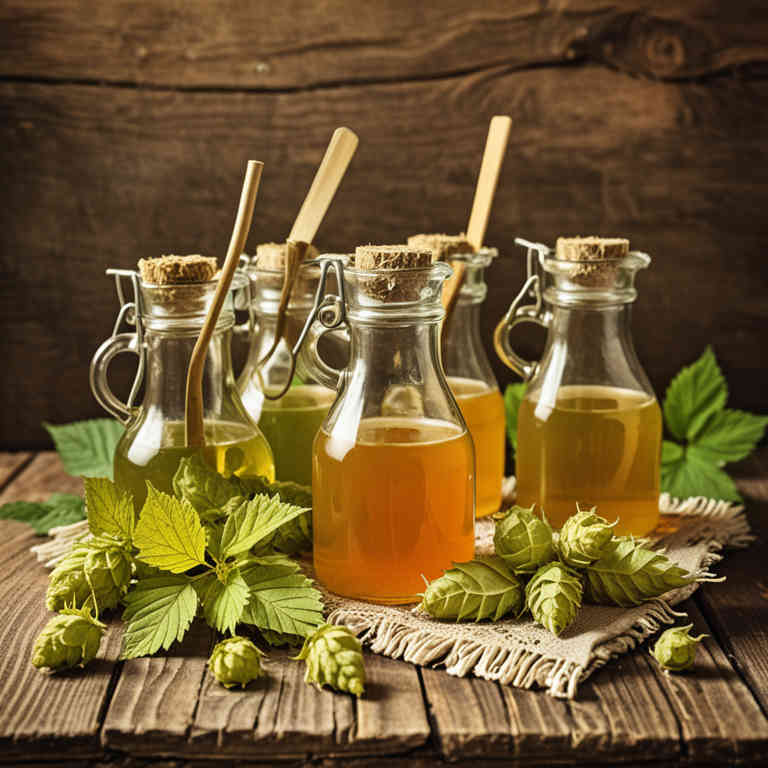
5. Linctuses
Humulus lupulus linctuses is commonly used to relieve coughs and soothe respiratory discomfort.
This herbal preparation is most frequently employed to treat conditions such as bronchitis, whooping cough, and other respiratory infections due to its expectorant and antitussive properties. The bioactive constituents responsible for these effects include compounds like humulone, lupulone, and various flavonoids, which have anti-inflammatory and antimicrobial actions. Additionally, the preparation may aid in reducing mucus viscosity and promoting its expulsion from the respiratory tract.
It is often used in traditional medicine and as a natural remedy for persistent coughs and throat irritation.
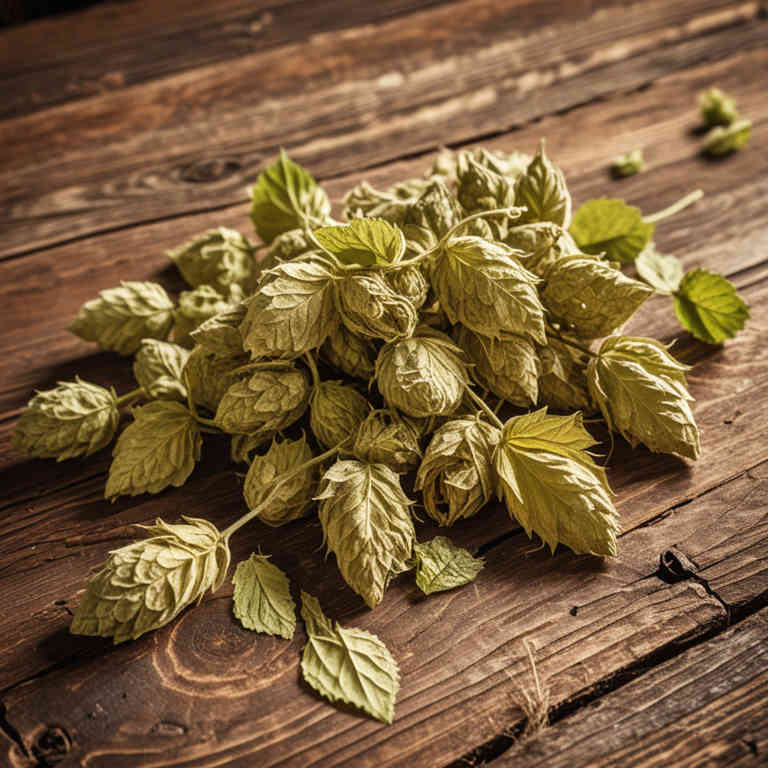
6. Capsules
Humulus lupulus capsules is commonly used to treat anxiety, insomnia, and digestive issues.
This herbal preparation is widely recognized for its calming effects and is often used to alleviate symptoms of stress and nervousness. It is also employed in the management of gastrointestinal disorders such as indigestion and irritable bowel syndrome. The bioactive constituents responsible for its medicinal properties include lupulins, which are bitter compounds, and polyphenols that contribute to its anti-inflammatory and antioxidant effects.
Additionally, humulone and other hop acids may play a role in its sedative and digestive benefits.

7. Lozenges
Humulus lupulus lozenges is commonly used to relieve symptoms of respiratory conditions such as sore throat, cough, and bronchitis.
These lozenges are often employed to soothe inflammation and irritation in the throat, making them a popular choice for treating sore throats and laryngitis. They are also used to alleviate symptoms of colds and flu due to their antimicrobial and anti-inflammatory properties. The bioactive constituents responsible for these effects include humulone, lupulone, and other bitter compounds known as lupulins, which have antimicrobial and anti-inflammatory actions.
Additionally, the preparation may contain flavonoids and polyphenols that contribute to its therapeutic benefits.
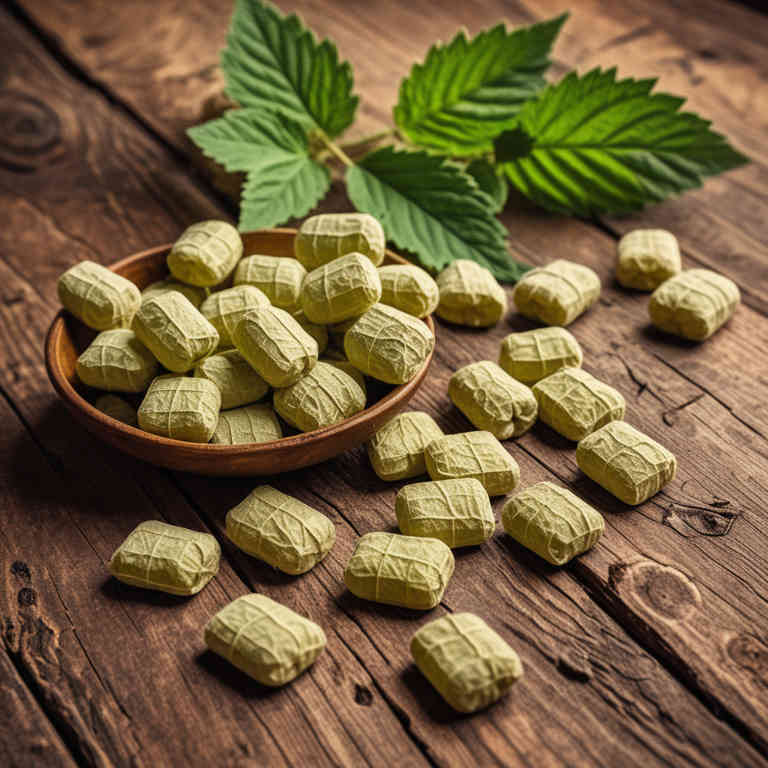
8. Creams
Humulus lupulus creams is commonly used to relieve symptoms of skin conditions such as eczema, psoriasis, and insect bites.
These creams are often applied topically to reduce inflammation, itching, and irritation. The most common medicinal uses include treating skin infections, muscle pain, and joint inflammation due to their anti-inflammatory and antiseptic properties. The bioactive constituents responsible for these effects include lupulins, humulone, and other bitter compounds that have antimicrobial and analgesic properties.
Additionally, the presence of flavonoids and polyphenols contributes to its antioxidant and anti-inflammatory actions.
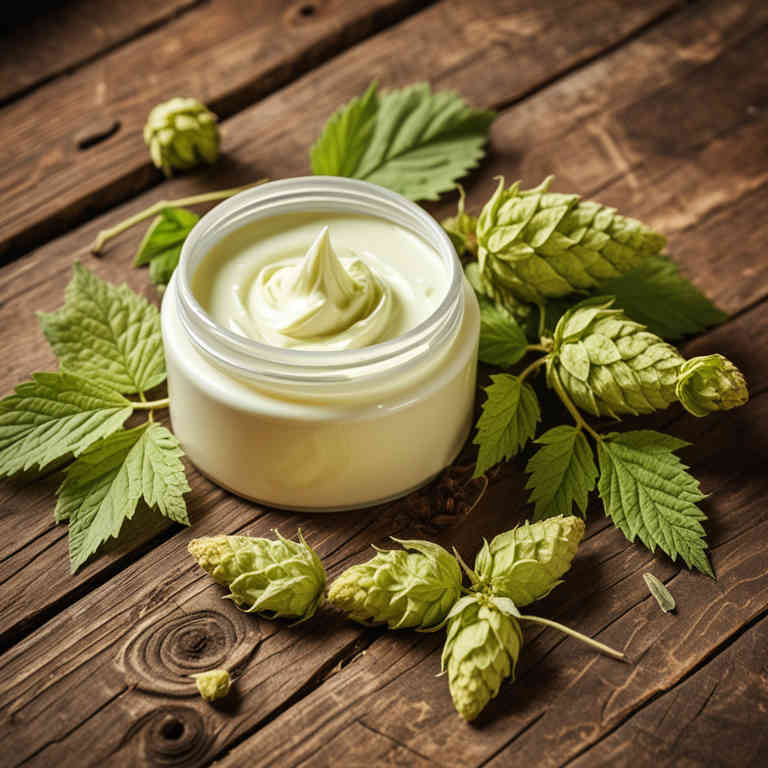
9. Oinments
Humulus lupulus oinments is commonly used to relieve pain, reduce inflammation, and treat skin conditions.
These preparations are often applied topically to address ailments such as arthritis, muscle pain, and eczema. The most common medicinal uses include alleviating joint inflammation, soothing skin irritations, and reducing pain associated with injuries. The bioactive constituents responsible for these effects include lupulins, humulone, and various flavonoids, which possess anti-inflammatory, antimicrobial, and analgesic properties.
These compounds work synergistically to provide therapeutic benefits in topical applications.

10. Liniments
Humulus lupulus liniments is commonly used to relieve muscle pain, joint inflammation, and skin irritations.
These preparations are often applied topically to treat conditions such as arthritis, muscle strains, and dermatitis. The most common medicinal uses include reducing inflammation, alleviating pain, and promoting skin healing. The bioactive constituents responsible for these effects include lupulins, humulones, and various polyphenols, which have anti-inflammatory and analgesic properties.
These compounds work synergistically to provide the therapeutic benefits associated with hop-based liniments.
